Working Party on Characterisation of Particulate Systems - WP CHoPS
Welcome to the website of the EFCE Working Party on Characterisation of Particulate Sytsems - CHoPS
The characterization of disperse (particulate) systems, referred to as particle measuring technology (PMT), is a specialized interdisciplinary field with a strong physical orientation affiliated to process engineering.
Current Activities
Business meeting
Mission of the Working Party
Background
The characterization of disperse (particulate) systems, referred to as particle measuring technology (PMT), is a specialized interdisciplinary field with a strong physical orientation affiliated to process engineering.
Disperse systems are described in the first instance by their particle size distribution (PSD); however, they can have very complex, multidimensionally distributed properties. In a particle collective, each individual particle can already be classified as a disperse system in its own right (e.g., agglomerate). Properties such as material composition, internal structure, shape, surface, size, volume, color, refractive index, magnetizability, density, porosity, dielectricity and strength but also properties of state such as position (in the sense of local concentration), speed, momentum and temperature are as a rule neither completely independent nor strongly correlated.
The physical effects in regards to measurement and sampling may depend on several, if not all, properties to a greater or lesser degree with the result that in practice for determining the target parameter the primary signal is evaluated only with the aid of assumptions, simplifications and models. If the measurement is based on a collective signal, as a rule a rather complicated inversion problem exists to obtain said distributed parameter.
All the partial aspects of a measurement, for example sampling, sample preparation, measuring effect, sensor, measurement system, evaluation, presentation/visualization, interpretation, use and process connection are collectively known as application.
The need for particle measurement technology results from various situations with very different requirements in some cases, as for example
- on-line PMT for process control
- off-line PMT without delay for continuous monitoring of the process
- random, continuous or complete monitoring of the product quality
- safety-relevant process monitoring
- PMT for product and process development
- PMT for process diagnosis
- PMT for research projects
- PMT for environmental and health protection
- PMT for biological processes
- PMT for nanoscale products
Mission Statement
Particle properties affect a wide variety of the materials encountered on a daily basis. Their size, shape and the charge of these particles influence how they behave. These traits, ranging from the texture of the food we eat, the efficacy of the pharmaceuticals we take and even to the stability of the buildings in which we live and work, are all size dependent.
The control and understanding of the size, shape and charge of materials in existence play a key role in the understanding and optimisation of their performance. It is vital that a chemical engineer involved in this topic has an excellent foundation in the creation and size reduction processes of these particles. The amount of time and focus spent on this topic within many degree programs is rather insignificant, lacking a significant amount of the material needed to equip an engineer from out of university for the challenges of "real industry".
The properties of the a chosen material can be assessed by a variety of measurement tools and devices, but which of these technologies are most suited for a particular application, and what considerations need to be taken into account in order to maximize the return on investment in such a device? How does an engineer investigating a particle-based problem determine if the existing equipment is the best solution, or rather a modification to this equipment (possibly via collaboration with a vendor) is necessary? These are all questions that an engineer working in this area has to face on a regular basis.
The aims of this EFCE Working Party are to provide help and solutions regarding particle systems by:
- Fostering collaboration between the end users, industry leaders and academia on the current state of the art and means of characterising certain chemical processes;
- Encouraging an increased focus on the characterisation of particulate processes within academia with regard to their relevance in industry;
- Producing white papers and discussion documents on the key issues in this arena;
- Encouraging the formation of a voluntary code of conduct provided by instrument manufacturers to provide key proof statements on specification points;
- Promoting this niche of chemical engineering as an exciting and challenging career path for all EFCE members.
Working Party Delegates / Elected Members
Dr. Christophe Bressot
INERIS
Parc Technologique Alata, BP2
60550 Verneuil-en-Halatte, France
Prof. dr.ir. Niels G. Deen
Eindhoven University of Technology
Dept. Chemical Engineering and Chemistry,
Multiphase Reactors
STW 0.45
P.O. Box 513
5600 MB Eindhoven, Netherlands
Tel: +31 40 247 3681; Fax: +31 40 247 5833
Contact
Prof. Krist V. Gernaey
Technical University of Denmark
Center f. Bioprocess Engineering
Dept. of Chemical Engineering
Building 229
2800 Kongens Lyngby, Denmark
Tel: +45 45 25 29 70; Fax: +45 45 93 29 06
Contact
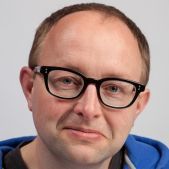
Prof. Maria Graca Rasteiro
University of Coimbra
Chemical Engineering Department
Rua Silvio Lima, Polo II
3030-790 Coimbra, Portugal
Tel: +3510239 798725; Fax: +351 0239 798703
Contact
Link to research group web page: http://www.uc.pt/fctuc/deq/ciepqpf/research_groups/ppb
Link to personal webpage: http://www.uc.pt/fctuc/deq/pessoas/docentes/maria_rasteiro
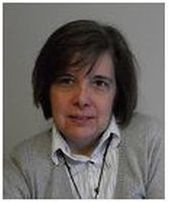
Dr. Jerry Yong Yew Heng
Imperial College London
Department of Chemical
South Kensington Campus
London SW7 2AZ, United Kingdom
Tel: +44 207 5940784
Contact
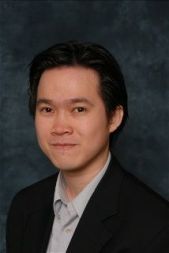
Dr. Edgar John
Novartis Pharma AG
Technical Research and Development ARD
WSJ-187.1.231
4002 Basel, Switzerland
Tel: +41 79 589 189; Fax: +41 79 696 7982
Contact
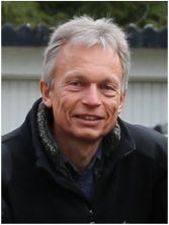
Prof. Dr.-Ing. Einar Kruis
Universität Duisburg-Essen
Nanostrukturtechnik
Bismarckstr 81
47057 Duisburg, Germany
Tel: +49 203 379 2899; Fax: +49 203 379 3268
Contact
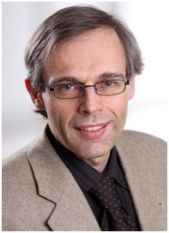
Dr.-Ing. Sebastian Maaß (Secretary)
SOPAT GmbH
Boyenstr. 41
10115 Berlin, Germany
Tel: +49 30 398 2020 00; Fax: +49 30 398 2020 49
Mobile: 01777383150
Contact
Link to webpage: https://sopat.de/en/management/
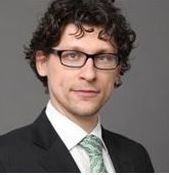
Dr.-Ing. Martin Morgeneyer (Chairman)
Université de Technologie de Compiegne
Génie des Procédés Industriels
Centre de Recherches de Royallieu
B.P. 20529
60205 Compiegne, France
Tel: +33 3 44 23 73 96; Fax: +33 3 44 23 73 88
Contact
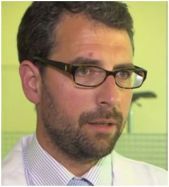
Prof. Dr.-Ing. Michael Stintz
TU Dresden
Institut für Verfahrenstechnik und Umwelttechnik
01062 Dresden, Germany
Tel: +49 351 4633 5176; Fax: +49 351 4633 7058
Contact
Dr. Ritva Tuunila
Lappeenranta University of Technology
School of Engineering Science
Chemical Technology Department
P.O. Box 20
53851 Lappeenranta, Finland
Tel: +358 40 5296855
Contact
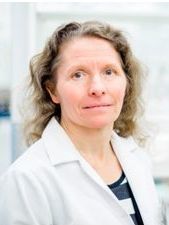
Dr. Richard J. Tweedie
TSK Solutions Ltd
East Lightside Farm
Steel, Hexham NE47 0HH, United Kingdom
Tel: +44 143 467/3096
Contact
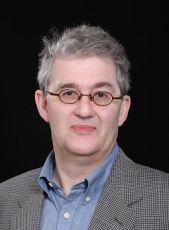
Mr. Stephen Ward-Smith
Malvern Instruments Ltd.
Grovewood Road
Malvern Worcs. WR 14 1XZ, United Kingdom
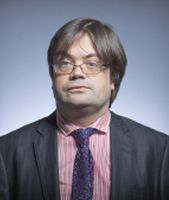
Guest Members
Dr. Reg Davies
International Fine Particle Research Institute
100 Farmstead Ct.
Westridge
Hockessin, DE 19707, United States of America
Tel: +1 302 235 74 68; Fax: +1 302 235 74 69
Contact
Prof. Dr. John A. Dodds
43, rue Gambetta
81300 Graulhet, France
Tel: +33 5 63 42 08 18; Mobile: +33 0635916942
Contact
Mr. Donnchadha Quilty
Particular Sciences Ltd.
Sales Engineer
2 Birch House, Rosemount Business
D11 T327 Dublin, Ireland
Tel: +353 1 820 5395; Fax: +353 1 822 8813
Contact
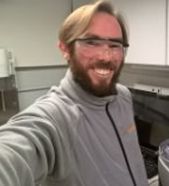
Dr. Rainer Friehmelt
BASF SE
GCP /TP - L 543
Carl-Bosch-Str. 38
67063 Ludwigshafen, Germany
Tel: +49 621 60 792 64; Fax: +49 621 60 66 79264
Contact
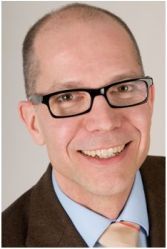
Prof. Dr. Vadim Mizonov
Ivanovo State Power Engineering University
Applied Mathematics Department
34, Rabfakovskaya Str.
153003 Ivanovo, Russia
Tel: +7 910 9948858; Fax: +7 910 385 701
Contact
Conferences
EFCE WP ChoPS Workshop on Particle System Characterization at WCCE Barcelona
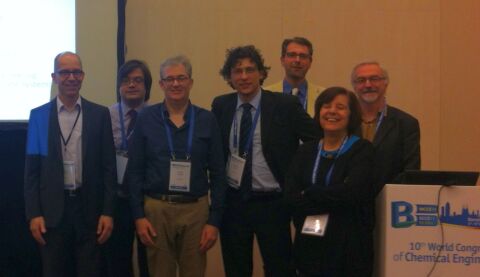
From left to right: Rainer Friehmelt, Steve Ward Smith, Richard Tweedie, Sebastian Mass, Martin Morgeneyer, Maria Rasteiro and Christophe Bressot